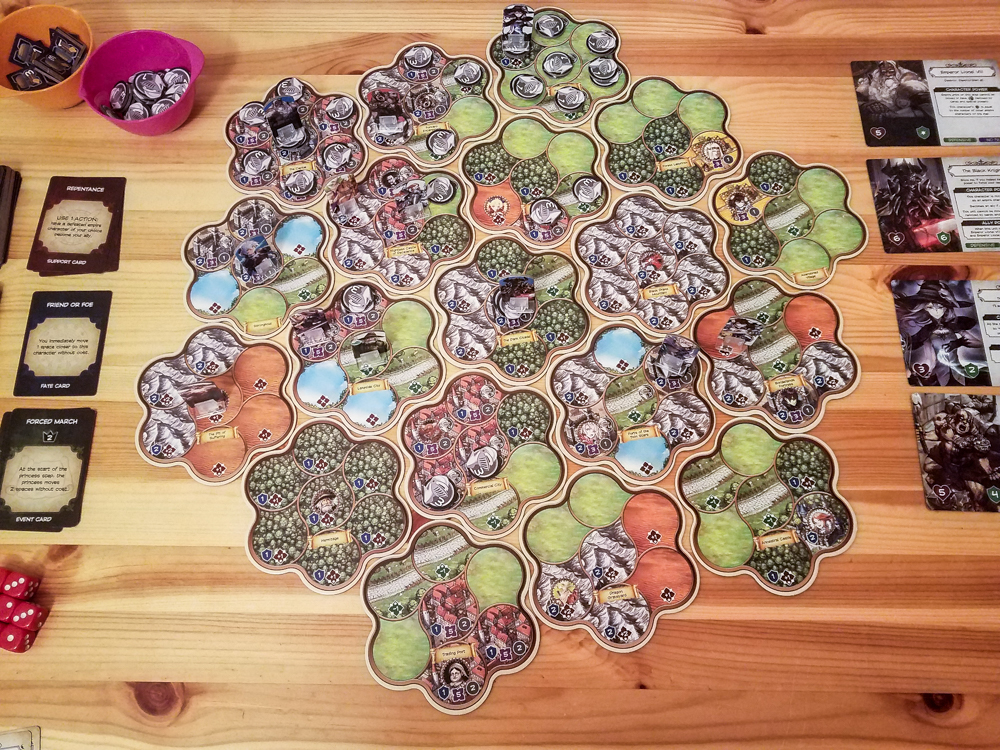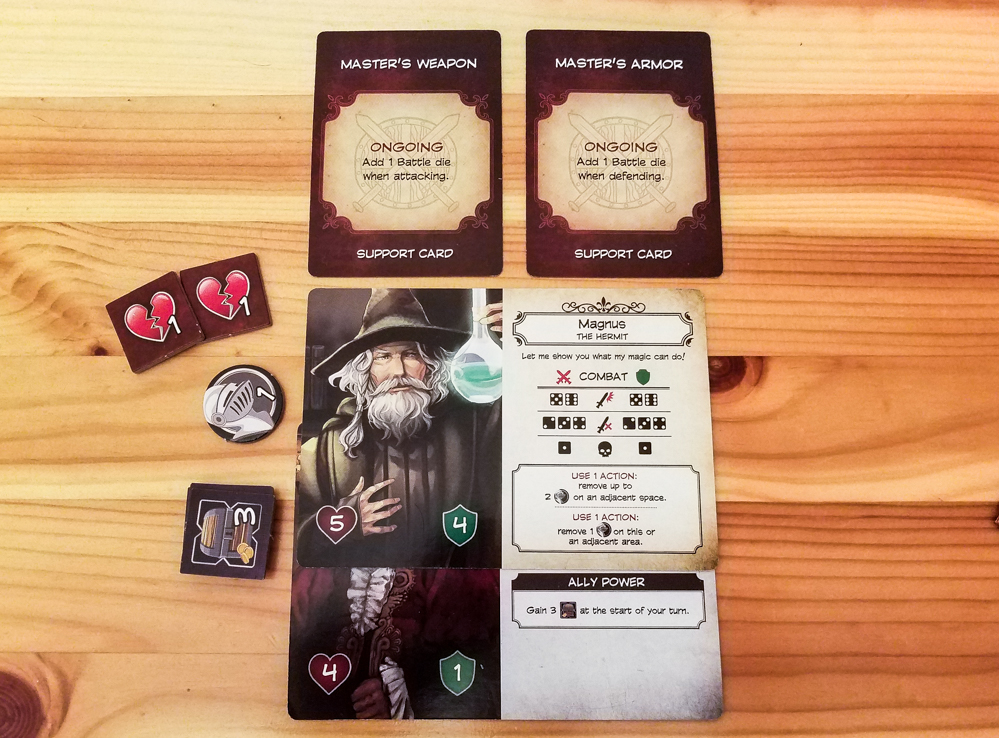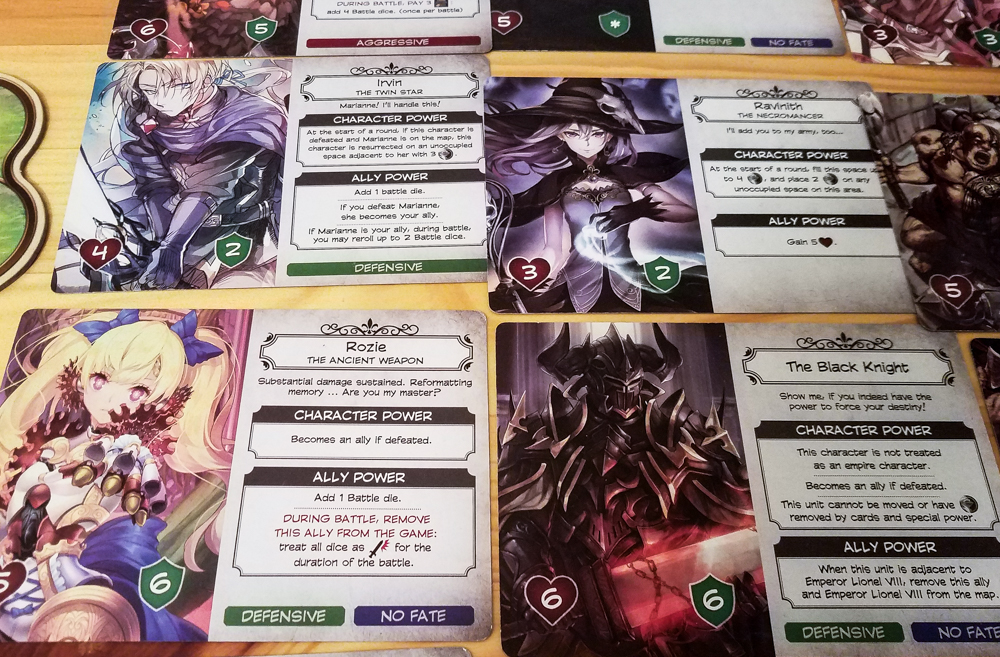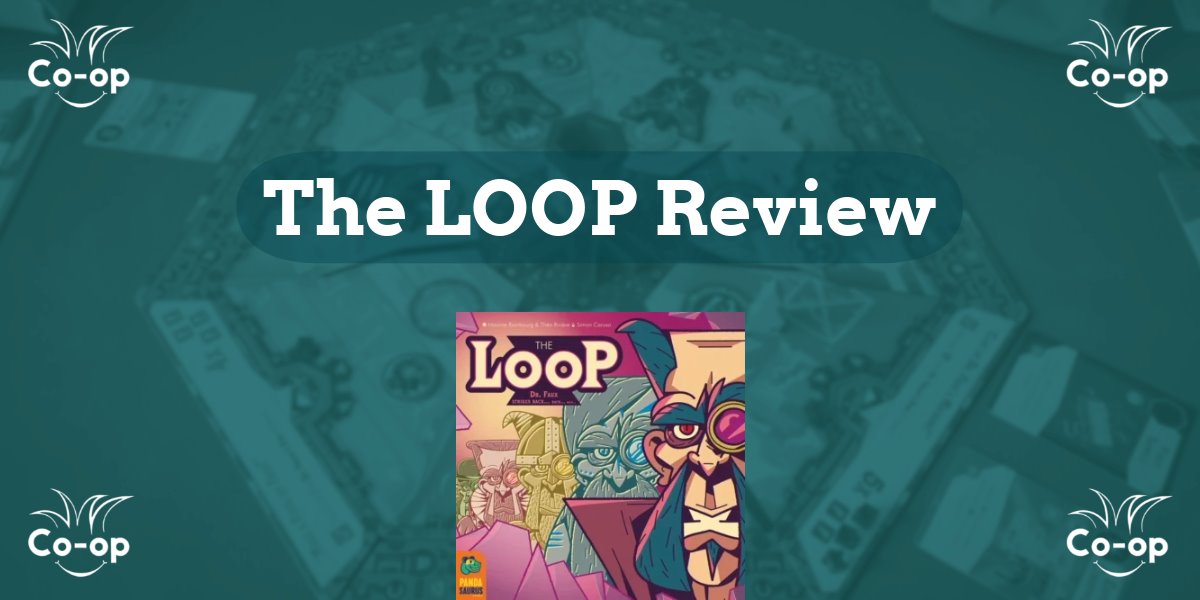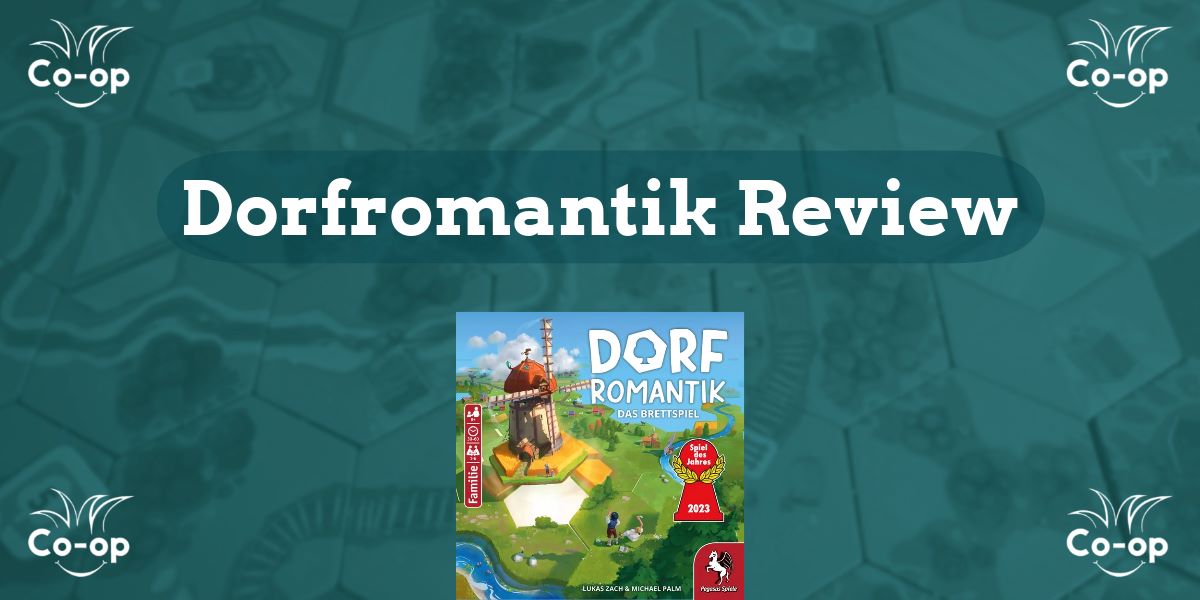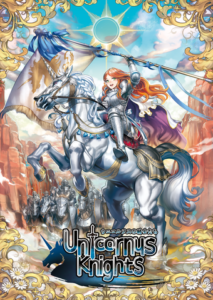
Year: 2016 | Players: 2-6 | Minutes: 60+ | Ages: 12+
This Unicornus Knights review was made after playing the game four times.
What is Unicornus Knights?
Unicornus Knights is a cooperative fantasy board game in which you play as Kingdom characters attempting to clear a path for a princess as she tries to take back her capital from the Empire. The game was designed by Seiji Kanai (Eight Epics) and Kuro (The Ravens of Thri Sahashri), and it is published by AEG.
Unicornus Knights Gameplay
Unicornus Knights is played over 10 rounds. Players need to keep the princess alive and help her make it to the capital city before the end of the tenth round. Interestingly, in most games the princess will be moving on her own, so you have to make your Kingdom characters clear a path so she doesn’t take too much damage.
An event card is drawn at the start of each round, some of which have instant effects and others have ongoing effects. The events can help or hinder the Kingdom characters.
After the event card has been resolved, all of the player-controlled Kingdom characters take their turns. You’ll have a set amount of actions you can take on your turn depending on the number of players. You can move around the map, recruit soldiers, collect resources to feed and arm your soldiers, send soldiers or resources to other characters (including the princess), and draw support cards. You can also use support cards and your character’s special powers on your turn.
Whenever your character moves onto a space that has an enemy on it, a battle takes place. You’ll roll a number of dice equal to the number of soldiers you have and looks at the the chart on your character card to see which results were hits and which were misses. If you’re fighting an Empire character, you’ll first assign dice to any soldiers with them and then assign your other dice to the character. You’ll take one point of damage for each “loss” die (usually 1s and 2s) that you’ve assigned and for any unopposed enemy. You can choose to assign that damage to your character and/or to the soldiers with your character.
If your character dies, you’ll lose all of their active support cards and resources, but you get to keep the support cards in your hand. At the start of your next turn, you take an unused character and keep playing.
After all of the Kingdom characters have taken their actions, the princess takes her turn. She gets three actions and she either moves or collects resources. She’ll always try to take the quickest route to the capital, so she’ll go into an enemy’s space and battle if it’s in her way. The princess always destroys the enemy in battle, but she also takes damage equal to the enemy’s health plus the number of soldiers they currently have with them.
After the princess’ turn, the Empire characters take their turns. Any “normal” enemies will attack any Kingdom characters adjacent to their space. “Aggressive” enemies will move toward any Kingdom characters within one tile/area of them. “Defensive” enemies stay put unless a card tells you to move them. When Empire characters move to spaces with soldiers, they add those soldiers to their armies and become stronger.
Fate cards are another important part of Unicornus Knights. These cards come into play whenever a character moves into an area with an opposing character or when two opposing characters end up adjacent to each other. When either of those things happen, a fate card is drawn and those two characters are now considered “bound by fate.” Some of the fate cards have instant effects, some will have ongoing effects, and others will tell you what you need to do once the Empire character has been defeated. Often this leads to an Empire character joining up with a Kingdom character as an ally, giving them new special abilities.
You’ll win the game if the princess makes it to the capital. You’ll lose if the princess dies or if she doesn’t make it to the capital before the end of the tenth round.
And that’s about it. You’ll be trying to figure out which enemies to target while also paying attention to where the princess will be moving on her turn. You don’t necessarily have to kill a bunch of the Empire characters, but the emperor—the guy who took the capital from the princess’ family—gets weaker as he loses troops, so it’s usually a good idea to take out the majority of them. Plus, they can become your allies and make you stronger.
The updated Unicornus Knights rulebook is on BGG if you’re interested in seeing all of the rules for the game.
Check out our Top 10 Co-op Adventure Games!
Pros
- Unicornus Knights has a unique feel to it. This is thanks to the new fantasy theme the designers have created and the fact that you’re tasked with clearing a path for the hero of the story rather than controlling her. Yes, like most other co-ops there is a puzzle for you to solve, but it’s a different type of puzzle.
- I’m also a huge fan of the look of Unicornus Knights. The tiles look fantastic and give the game a great table presence, and I really like the different styles used in the character art.
- The Fate cards add an extra layer to the story. It’s exciting seeing if the Empire characters switch sides or possibly make the journey tougher.
- The 27 characters in the game all have a unique feel to them. They have different strengths and weaknesses in battle, and the special powers give players a better understanding of their roles.
- There is a ton of replay value here. The map is semi or fully randomized, you’ll have different characters in play, there are four different princesses you can play with, and the event and fate cards add in even more randomness.
- Unicornus Knights is a good challenge at each difficulty level. Sure, the one princess that the players control is pretty easy to win with once you’re used to the game, but that’s an excellent introductory game and new players will still find it challenging.
Cons
- It takes a while to set up a game of Unicornus Knights. You get used to setting up the oddly-shaped tiles, but there are SO MANY soldier tokens you have to place on the tiles before you can start the game. I’ve picked other games over this one for game nights multiple times simply because I didn’t want to set it up.
- It also takes up a lot of table space. The tile layout is about the size of a large board and you also need to make room for the 15 large Empire character cards.
- A lot of people think the original rulebook is awful. I don’t think it’s that bad, but there are a few confusing rules and some interactions aren’t explained. The updated rulebook does address most of the issues I had.
- In two-player games, each player has to control two characters. That’s okay in some co-ops, but I’m not a big fan of it in Unicornus Knights. Plus, the one two-player game I played seemed to last longer than both of the four-player games I played.
- The basic red dice don’t match the overall look of the game. Some custom dice would have been great.
Final Thoughts
I really like Unicornus Knights. It’s kind of a tough game to get to the table because of the long setup time, but it’s been a consistently fun experience. All of the characters are interesting in their own ways and each game tells a slightly different story.
This is usually where I compare the game I’m reviewing to other similar games, but I can’t do that with Unicornus Knights because it is such a unique game. I’d say if you like the idea of working together to escort a princess while fighting off some nasty enemies, this is a game you’ll probably enjoy. I don’t recommend it as a two-player game, though.
Unicornus Knights Links
BGG | Amazon | eBay
Thanks for taking the time to read our Unicornus Knights review!
Be sure to also take a look at our Best Cooperative Board Games list and other rankings.
To stay updated on all things co-op board games and card games, follow us on Facebook and X.

